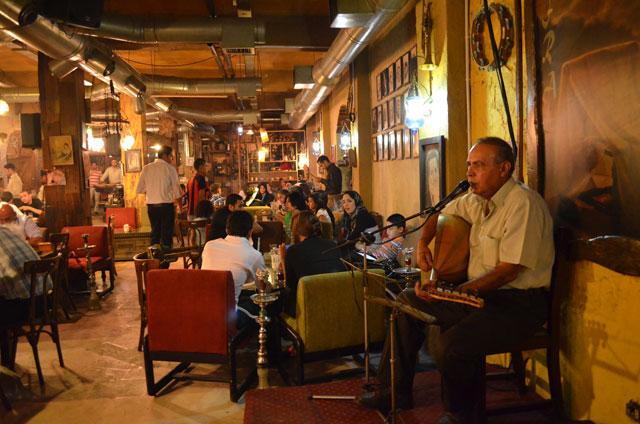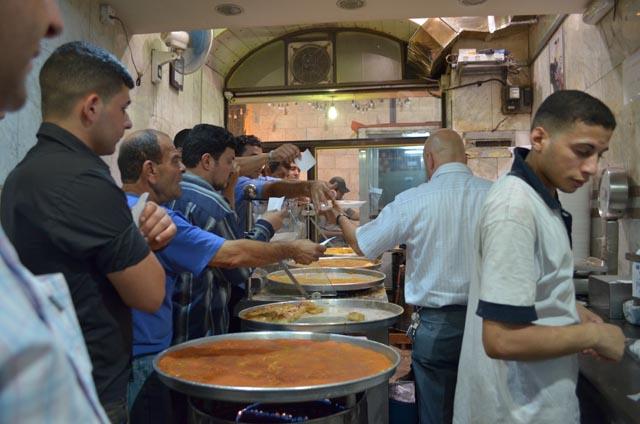You are here
For some, Ramadan means more work, less rest
By Suzanna Goussous - Jul 15,2015 - Last updated at Jul 15,2015

Some cafés around Amman receive customers until the hours before dawn during Ramadan, as families and friends go out at night after breaking their day-long fast (File photo)
AMMAN — Although public sector employees work fewer hours in Ramadan, from 10am to 3pm, others, such as workers at shopping centres and coffee shops, face longer, more hectic working hours during the fasting month.
Emad Halawa, who works at a café in Amman, told The Jordan Times that the pressure on employees increases during Ramadan, and many coffee shops tend to hire more people in order to “keep up” with delivery orders and “meet the needs of customers”.
Another employee at a store located next to the University of Jordan said the number of customers increases during late-night hours after iftar, the meal to break the day-long fast.
“We open two hours before iftar and receive many orders for delivery. When iftar was earlier, we would close at about 11pm. This year, we have to close after midnight for the residents of this area,” he said.
He added that customers look for a place to sit and have a cup of coffee or a quick snack, especially those who perform taraweeh (special Ramadan prayer).
After Muslims break their fast at around 8pm, they tend to go out late at night and spend their time at cafés and restaurants, staying out until dawn sometimes.
Some of the stores and shopping centres are open until a few hours after taraweeh, according to the employee, who preferred anonymity.
Saed Abdul Kareem, a waiter at a restaurant in the capital, said his working hours increase during the fasting month because customers are more likely to go out during the period between iftar and sohour, the pre-dawn meal to prepare for the daylong fast.
“During Ramadan, we face a problem of shifts and who should work during the late-night shift,” he noted.
“There is a slight increase in pay, of course, but the late-night shift is just too exhausting; there are more customers and fewer waiters, and we have to juggle so many orders,” Abdul Kareem said.
Bashar Sarayrah, who works for a food delivery company, said although restaurants are open for deliveries in the morning and at noon, orders are mainly received at sohour.
“Working at night is usually normal for us, but with the load of traffic between both meals in Ramadan, it gets more difficult to deliver the orders on time,” he said.
Traffic jams are a common occurrence in Ramadan, with peak hours being just before sunset as motorists rush home to have iftar, or after 10pm, when families start going out to spend some time at cafés or visit relatives and friends.
Hussein, a security guard for a building on one of the capital’s main streets, said working for extra hours “requires more energy and is more intense”, since areas near mosques witness congestion when worshippers go for isha and taraweeh prayers.
“Although we work for long hours during other months as well, we do not find it as stressful as this month, especially since we are fasting the next day and need some rest to prepare.”
He said a few scuffles took place on the street this Ramadan, but they were nothing “worth mentioning” and were caused by “misunderstandings”.
Related Articles
AMMAN – The Greater Amman Municipality (GAM) has announced a set of regulations for café and business owners who want to open tents in Amman
AMMAN — The Tourism Ministry has announced instructions that allow tourist facilities to work during Ramadan and provide services, but witho
Jordanians usually buy over 200,000 kilogrammes of sweets, mainly knafah, during the five hours that follow the announcement of Tawjihi results, a sector leader said Tuesday.

















